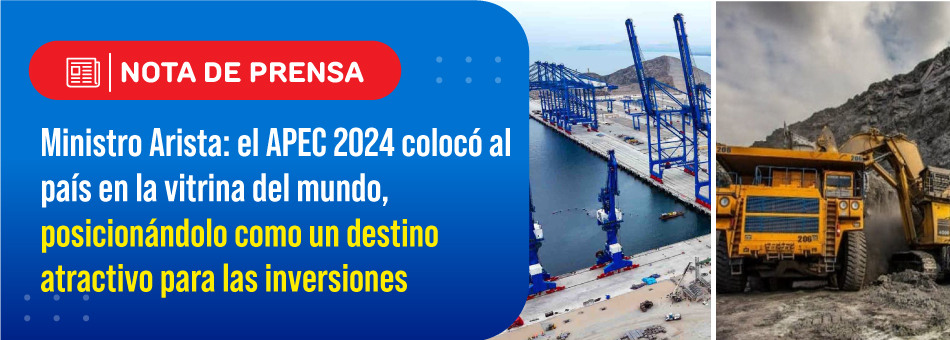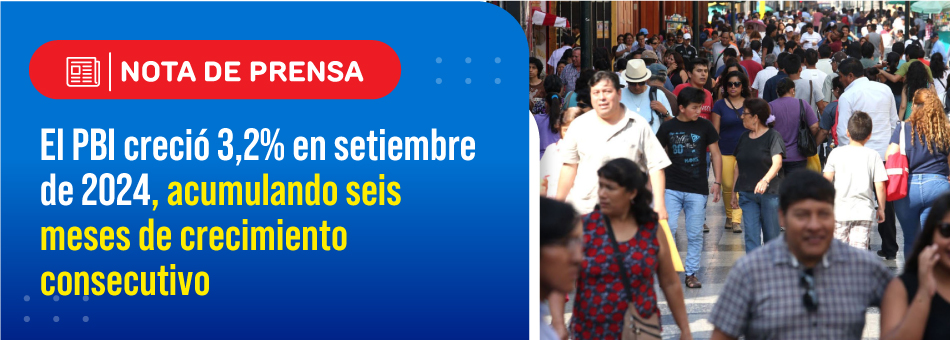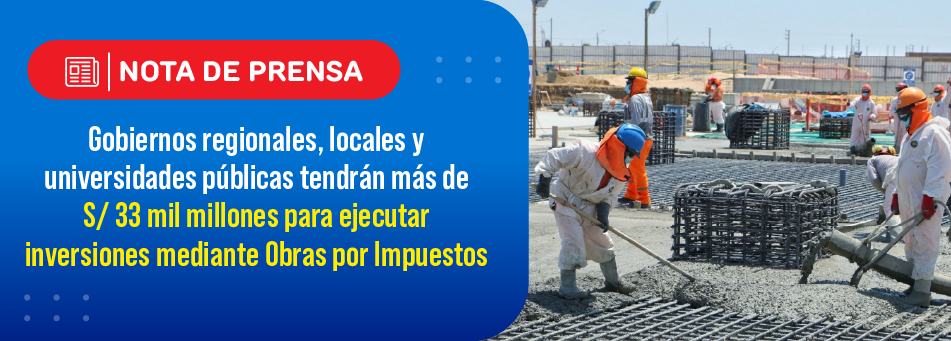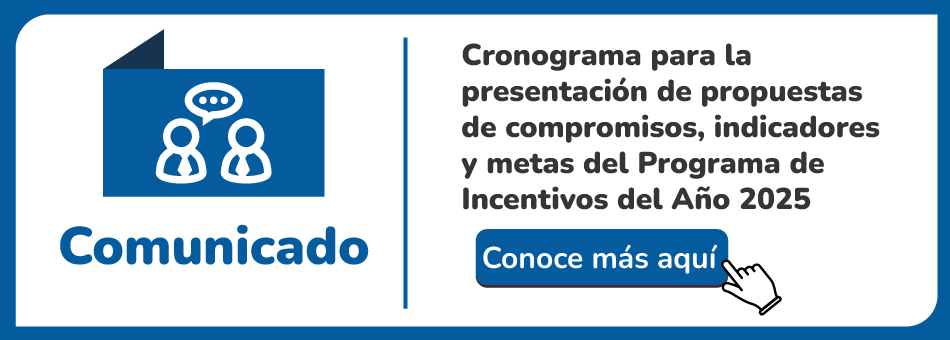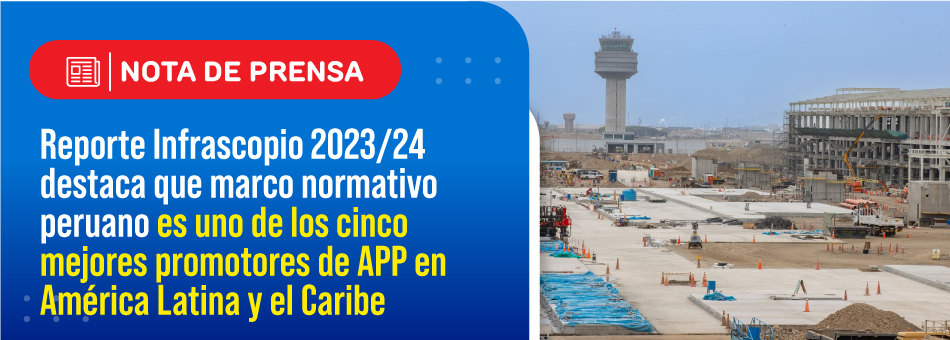"Año del Bicentenario, de la consolidación de nuestra Independencia, y de la conmemoración de las heroicas batallas de Junín y Ayacucho"
Notas de prensa y comunicados
PERU ADVANCES AGRARIAN REFORM BONDS PAYMENT PROCESS AND ACKNOLWEDGES DISPUTE NOTICE
Lima, 2 de june de 2016.- The Ministry of Economy and Finance advises that the Republic of Peru has received a document titled “Notice of Arbitration,” under the Peru-United States Trade Promotion Agreement (TPA) from two allegedly U.S.-based entities: Gramercy Funds Management LLC and Gramercy Peru Holdings LLC. The Notice relates to alleged holdings of agrarian reform bonds. This is the latest attempt to discredit Peru, following similar past attempts, and mainly appears designed by Gramercy to call attention to their particular interests during the country’s current circumstance.
The Ministry of Economy and Finance has the following preliminary comments at this time.
AGRARIAN REFORM BOND PROGRAM
Peru has an administrative procedure for paying the legitimate holders of agrarian reform bonds that is advancing in compliance with the law.
- The agrarian reform bonds originated from particular circumstances that the country went through in 1969. The bonds were provided as compensation for land in the Agrarian Reform Program. They were provided in Peru, in the then-current local currency, subject to Peruvian law and the jurisdiction of Peruvian courts. They are different from contemporary global sovereign bonds.
- The Constitutional Tribunal issued a Decision in 2001 providing that payment should be made on the bonds, without specifying a methodology. Later, the Constitutional Tribunal issued a Decision in 2013 establishing a valuation methodology. Accordingly, it ordered the establishment of an administrative procedure to process the bonds. The Decision of the Constitutional Tribunal remains in force and binding by law.
- The Ministry of Economy and Finance duly established an administrative procedure open to legitimate bondholders. Peru installed a team for the review of the bonds submitted by the bondholders and developed a special protocol and database for authentication of those bonds.
- The administrative procedure provides for the authentication and registration of the agrarian reform bonds, as well as their valuation and payment. Over the past two years, hundreds of bondholders have participated and over ten thousand of bonds have been authenticated. The Ministry continues to develop and implement the next phase in the administrative procedure to facilitate the actualization and payment of the bonds.
THE GRAMERCY CLAIMS
Gramercy is an investment fund in the United States which states that its mission is “to exploit distressed investment opportunities in emerging markets,” and has asked Peru to make a payment arrangement with it outside the scope of the ruling issued by the Constitutional Tribunal and established procedure.
- According to Gramercy, it acquired approximately 10,000 agrarian reform bonds from the years 2006 through 2008. Gramercy has chosen not to participate in the established administrative procedure for bondholders. It also has discouraged some Peruvian bondholders from participating in that administrative procedure.
- The Peru-U.S. TPA entered into force in 2009. Gramercy has sought to use its alleged U.S. nationality to develop international claims for its own benefit, claims that are not available to Peruvian citizens. Gramercy delivered to Peru a preliminary document entitled “Notice of Intent” dated February 01, 2016, with reference to the Treaty. Gramercy later delivered to Peru another preliminary document entitled “Notice of Intent,” also dated February 1, 2016, but delivered on April 15, 2016.
- The Special Commission for the Representation of the State in International Investment Disputes, established pursuant to Law No. 28933, invited Gramercy to engage in consultations within the framework of the Treaty and applicable law, while reserving all rights of the Peruvian State. The Commission has participated in discussions and communications with Gramercy in good faith.
- While consulting in good faith, Peru also has consistently rejected Gramercy’s claims. Gramercy wants Peru to disregard the applicable law and give Gramercy special treatment. Gramercy has not shown that it is a legitimate investor that made lawful investments in Peru, or that it is entitled to jurisdiction under the Treaty. Gramercy also has not shown that Peru has violated international law.
- Peru has an exceptional track record in international arbitrations and has defeated claims worth billions of dollars and obtained decisions of over one hundred million dollars in its favor. It will defend itself vigorously.
THE NEGATIVE GRAMERCY CAMPAIGN
Gramercy has not consulted in good faith, but instead has carried out a negative campaign seeking to harm Peru and Peruvians.
- Gramercy has refused to provide relevant information and documentation to Peru. Among other things, Peru has requested clarification regarding compliance with relevant Treaty requirements, and information and documentation regarding its alleged holdings of bonds. Prior to today, Peru had not received a single copy of a single bond allegedly held by Gramercy. Questions that Peru has raised are still pending.
- Gramercy also has pursued what the Wall Street Journal described as a “campaign” against Peru. Gramercy attacked Peru through the press at the time of the historically successful World Bank/IMF meetings in Lima last October. Gramercy has engaged in a protracted international media through various groups of lobbyists hired for that purpose, despite repeated requests from Peru for a respectful and constructive dialogue.
- Gramercy also has disseminated propaganda regarding the Constitutional Tribunal Decision, even though that decision remains in force, and the existence of an only illustrates that Peru has a system based on the rule of law.
- Gramercy also has resorted to threats and blackmail. Gramercy demanded that Peru sign a biased agreement to waive its rights under the Treaty, and threatened to advance its negative campaign if Peru did not capitulate. When Peru did not agree, Gramercy sought to pressure Peruvian representatives at international meetings through smear campaigns. Likewise, when Peru offered a more balanced agreement, Gramercy promptly rejected it and also demanded that Peru provide a government decree immediately.
GOOD MANAGEMENT OF SOVEREIGN DEBT BY PERU
Peru maintains its strong international reputation as a stable and responsible country in the management of its sovereign debt, as reflected in the investment grade rating of the country by international rating agencies.
- As part of its negative campaign, Gramercy obtained and distributed to the press a biased report by a professor alleging misconduct by Peru in connection with its issuance of contemporary global bonds unrelated to the agrarian bonds. Peru obtained an independent report by Paul G. Mahoney, an expert in securities law and the Dean of the University of Virginia School of Law, one of the leading law schools in the U.S. He concluded that there was no legal or factual basis to Gramercy’s particular allegations.
- The markets and ratings agencies continued to show strong support for Peru. In December of last year, Moody’s issued a report that acknowledged and explained the agrarian reform bonds, signaling the high standing of Peru and its debt management. In February 2016, Peru issued one billion euros of global bonds in the international markets in foreign currency, governed by foreign law and subject to the jurisdiction of foreign courts, unlike the agrarian reform bonds. In March 2016, Fitch reaffirmed its credit rating of Peruvian sovereign debt, highlighting, among other things, the consistency of Peru’s macroeconomic policy and financial stability.
- Peru will continue to be a reliable issuer of contemporary global bonds, and also will continue to implement the established procedure for payment of holders of the agrarian reform bonds. Peru will defend its position against the claims of Gramercy firmly and within the legal framework.

